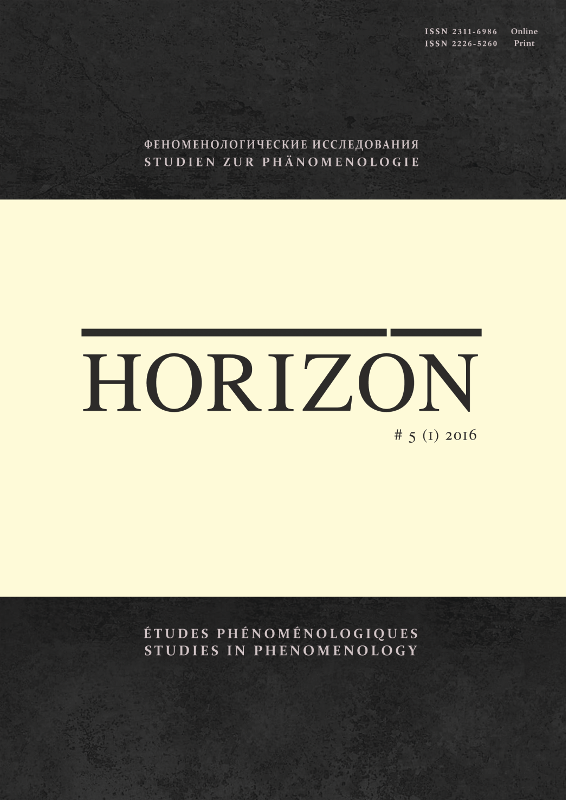FAKTIZITÄT, NOTWENDIGKEIT UND ZUFÄLLIGKEIT
BEI ARISTOTELES UND HUSSERL
FACTICITY, NECESSITY AND CONTIGENCY AT ARISTOTLE AND
HUSSERL
Author(s): Irene BreuerSubject(s): Metaphysics, Ancient Philosphy, Phenomenology
Published by: Издательство Санкт-Петербургского государственного университета
Keywords: Aristotle; Husserl; facticity; accidental; necessity; contingency; absolute; event
Summary/Abstract: In his book Welt und Unendlichkeit. Zum Problem phänomenologischer Metaphysik, László Tengelyi hasenquired into the possibility of a phenomenological metaphysics. Among the many issues addressed in his book, he thematized a real necessity of a non-a priori kind at Aristotle and Husserl, a necessity which he called «a necessity of the fact». His research settled the basis for the present enquiry, which will examine the relationship between the absolute and the conditional necessity of a fact as well as the contingent or accidental features involved therein at Aristotle and Husserl, insofar as facticity is concerned. I intend to show that although both authors share the view that worldly beings are characterized by their contingency,they differ as to their necessity: Aristotle attributes a contingent necessity to the factual being i.e. to reality,a necessity characterized by its being temporarily conditioned by actuality and which can therefore be defined as the «conditional necessity of a fact». As to Husserl, transcendental phenomenology must,upon the basis of the eidetic method, determine the possibilities out of which the ego constitutes the factual world. He states the necessity of the fact as an eidetic necessity, which has to be grounded on eidetic laws. Later on, I’ll try to show how enquiries into a «metaphysics in new sense» lead to a revision of the meaning of «fact» and to an inversion of the order of foundation as well: The original givenness of the world, the primal I, intersubjectivity and historicity as primal and absolute facts carry the eidetic necessities. Accidental causes, on the other hand, account not only for the contingency of the real but, at Husserl, for the ego’s «essential openness» and its core of primal contingency. In this context, I’ll argue that facticity paired with the accidental allows for the irruption of something new that overwhelms us— an event as Ereignis.
Journal: Horizon. Феноменологические исследования
- Issue Year: 5/2016
- Issue No: 1
- Page Range: 133-149
- Page Count: 17
- Language: German

